- Home
- Sharyn McCrumb
The Ballad of Tom Dooley Page 3
The Ballad of Tom Dooley Read online
Page 3
She sat there on her stool, looking up at me with an expression of mild curiosity, like she didn’t know who I was and didn’t care overmuch, either. I didn’t think Ann ever had much use for other women, nor they for her. But speaking my mind would not get me bed and board, so I knelt down, all smiles, and threw my arms around her, as if she were my dearest friend in the world.
“Why, Ann, it’s Pauline. My daddy, rest his soul, was first cousin to your mama, and I have just come down from the mountain to see my kinfolks here.”
Ann shrugged. “Well, you’re a scrawny little thing, ain’t you, Pauline? And you don’t have much of the Foster looks about you. I’d not have knowed you. But you had better sit yourself down here by me. Your cheek feels like ice. -James! This fire needs another log!”
He got up without a word to do her bidding, and, as he was shoving fresh wood into the blaze, I saw him close up in the firelight, and I revised my estimate of his age. What I had taken for gray hair in the dim light turned out to be naturally fair hair that shone like bronze when he was kneeling by the fire. He stood tall and straight, his face and hands were free of veins and creases. Why, he couldn’t be much past our age from the look of him, for all that he acted twice that. I wondered if he was ill himself, or if the War had sapped his vitals, or-I stole a glance at Ann, staring drowsily into the fire-maybe living with her just drained the life out of him. I wasn’t sorry for him, though. Any man who insists on taking up with a beautiful wife ought to pay dearly for the purchase. I could see that he had.
***
Ann had taken the pins out of her hair, and she shook her head to let it fall about her shoulders. From the folds of her skirt, she drew out a wooden comb and began to brush the tangles out of her black curls.
I summoned a smile and held out my hand for the comb. “I’d be glad to do that for you, Ann. It’s hard to reach there in the back.”
She frowned a little, but then she gave a little shrug and handed over the comb. I was sure she was accustomed to accepting kindnesses from the male sex, but that it was a rarity for a woman to offer her anything. “What is it you came for, again?” she said.
I had it in my mind to lie about the purpose of my journey, but I could see that Ann Melton was not one to be swayed by fine words about sentiment and family feeling. She had no use for relatives, nor for the society of a woman friend. What did she have a use for? I looked again around the shabby room that stank of stale food and unemptied chamber pots.
“I was hoping you could use a hired girl,” I said, making even strokes with the comb through the thicket of hair. It could have used a wash with soap and lavender water more than a brushing, but the weather was mortal cold, and most women would rather have greasy hair than risk the chills and fever that could come from washing it afore spring. Anybody else would have looked scraggly and foul with lank, dirty hair, but it hardly took the shine off Cousin Ann, lit up in the firelight like Jacob’s angel.
“I can cook and do the washing and mending. Scrub floors. Bake bread. See to the chamber pots. And I reckon I can do farm chores. I’ll work cheap enough.”
She pushed her hair out of her eyes, and turned to study me now, her interest captured at last. “You want to work here? As a hired girl? What for?”
“I came down here to see the doctor,” I said. Best go with the truth. Ann Melton understood selfishness. “I’m sick, and I need to stay close by for a couple of months while I get treatment for my ailment.”
She pulled away from me then, making the comb jerk against her hair, and she swore and snatched it back from me. “What’s the matter with you, then? Consumption?”
I could hear the alarm in her voice. Consumption took young healthy people in a matter of months, and your very breath might spread the contagion to a healthy household. I forced myself to laugh and to keep my voice steady. “Naw, it ain’t that. I’m fit enough to work like a mule. Mostly, I don’t even feel sick. I am just feeling poorly is all.” I pointed somewhere between my stomach and my knees and made a face.
After I said it, I glanced over at James Melton, but he was just gazing off into the fire like he hadn’t heard a word we said, or else he didn’t care. Ann gave me a moment’s shocked stare, and then a harsh laugh. “Reckon somebody made her little old self the Soldier’s Joy these past few months.” She hummed a little snatch of the tune, ending in a fit of giggles.
Well, that was true enough, so I laughed with her, because getting mad about the taunt wouldn’t get me what I wanted, and anyhow it was better to laugh than to think of dying in a raddled, festering lump before I reached thirty. Either way, the joke was on me. I just wish whoever give me that dose of poison in our coupling had been worth dying for. But nary one of them was.
Ann’s giggles tailed off, and she began to twirl a hank of that greasy hair while she thought about what I said. Then she leaned in close, watching my face while she spoke, but I didn’t move a muscle. “It ain’t a baby, is it?”
“No,” I said, trotting out the lie that I had made ready for just that question. “I got shut of one and that’s why I’m ailing.”
Ann nodded, satisfied. It was the answer she expected to hear. “I wish I had thought of doing that. James and me have got two.” She pointed to a cradle set in a corner of the room. “My mama keeps them half the time, though.”
“It’s good to have her close like she is.”
Ann nodded. “And too drunk mostly to make the climb up the hill to see us. But I take the babies to her, so that’s all right. -So, Pauline, you’re aiming to stay here for a couple of months while you are seeing our Dr. Carter for physick, and you are wanting to board with us, and to pay for your keep by being the hired girl. Is that right?”
I nodded. It was simple enough to state the facts, but I thought that living through the bargain itself was likely to be the longest spell of my life. I looked at them, more masters than kinfolk, that was sure. All James Melton seemed to want was a quiet life, which was all right with me. I wouldn’t add to his troubles, but I doubted if I’d take much away from them, either. I wondered what Ann wanted. Not a woman chum-I could see that. Of course she’d want somebody to do a hand’s turn of work around the place, which was more than she ever did, but there was something else besides.
“So you’ll do all the cooking and cleaning here, and you’ll help James in the fields besides?”
I nodded. I would have promised her anything to get leave to stay. If it got too harsh around the place for me, then I could take my time and find somewhere else to light, but for now I needed to stay.
She gave no sign of yea or nay, and she was still watching me through narrowed eyes, maybe trying to satisfy herself that she was getting the best end of the deal. “Would you want paying?”
I hesitated. This was the part that had to be got over, before I could be sure of my place. “I would. That’s only right, for as I have said, I will work as hard as a man for my keep.”
James Melton looked away from the fire then. “We must give her wages if her work is satisfactory. I’ll not have it said that I did otherwise.”
“I need the money to pay the doctor for my care. Just enough for that. But I don’t eat overmuch, and I’m not particular about where I bed down, long as it ain’t out in the cold.”
A look passed between them, for however separate the ways of man and wife, they can still speak without words before outsiders. Ann glanced back at me, and shrugged. “If she works in the house and the fields, all summer long, mind you, I reckon we could pay her something, so she can buy her medicine.”
James Melton nodded mournfully. “Doctors ain’t cheap.”
“But remember we are giving her room and board besides.”
“Well, if I have somebody to help with the chores and the farming, I’ll be able to do some more shoemaking and wagon building. That will bring in a little money, and that’s worth something.”
I looked hopefully at James Melton, trying to keep my face a blank, so as not to push
him into reconsidering. If I looked at all pleased, he might doubt that he was getting the best end of the deal.
“I think we could run to ten or eleven cents a day,” he said at last. “Would that suit?”
I stared at the floor, thinking of working from sun-up until dark for a penny an hour. Why, I could make more than that in an hour with soldiers and drovers, but the armies were gone and drovers were scarce in winter. Beggars cannot be choosers, and beggar I was. But I could see that they didn’t have much to spare. Times were hard for everybody in this winter after the War, and I saw that he meant to be kind. There were plenty of people who would have expected more from me and offered less. And to me working for paltry wages was cheaper than having to pay lip service with gratitude for my keep.
“Thankee. It will do me just fine,” I said, summoning up a smile.
PAULINE FOSTER
Early March 1866
If you ever take a notion to hire yourself out as a maid of all work, I advise you not to go hat in hand to any relatives you may have, for your kinfolks will treat you worse than ten strangers ever would, and they’ll think themselves charitable while they are doing it.
I settled in to the household, peculiar as it was, and I suppose it might have been worse. Since I did the cooking and the washing up, there was no question of begrudging me food. I ate same as they did. And they didn’t expect me to sleep in the barn, though when the weather turned warm, it crossed my mind a time or two.
That first night we sat up by the fire for another hour or so, not saying much, and finally when Ann began to yawn, I said, “Where do you want me to sleep?”
“With me, I reckon,” she said, pushing her stool back from the fire.
I looked over at the two narrow beds, set a few feet apart, for I had been hoping to have one to myself. I glanced over at James Melton, who was sitting at the pine table, with his shoemaker’s tools in front of him, and he was crafting the leather sole of a lady’s slipper. “But what about him?”
“One bed is his’n and one’s mine,” said Ann. “You can take your pick I reckon.”
So man and wife didn’t sleep together. Well, that was interesting. But I didn’t want him no more than she did, and it was no part of the work I had bargained for, so I said, “I’d as lief share with you, cousin.”
“That will do-but not every night.” She gave me a little cat-in-the-cream-jug smile, and added, “Some nights I might have company.”
***
I had judged right about Ann’s attitude toward work-which was that she never did any if she could avoid it, and mostly she could. Every morning at daybreak I dragged myself out from under the pile of quilts, taking no care at all to be quiet about it, but that lump under the covers next to me might as well’ve been a log for all it ever moved at that hour.
A while later, once I had built the fire back up from embers, when the milk gravy was hot in the skillet, the biscuits were near done, and the scrawny winter apples from the storeroom were stewing back to sweet plumpness in hot water, why then, with many a yawn and groan, Miss Ann would hoist herself out from her warm burrow, and throw on her day clothes in time to be the first one at the table. By then James would have brought in more wood, and most days he’d fetch me a pail of water for cooking while he was outside, so the both of us had done an hour’s work before the tip of Ann’s perfect nose ever poked out from under the covers. The way I saw it, part of my eleven cents a day was wages to keep my opinions to myself about such as this, but I couldn’t help thinking that I was here in the first place because I was sick, and I minded having to work so hard in the shadow of a spoilt little poppet, who couldn’t even spare a thank you for them that kept her fed and warm. If I ever meet another woman as handsome as Ann Melton, I mean to ask her: “Do you think you can treat everyone in the world as your servant, just on account of your fine face?” I really would like to know what goes on in the scullery behind such a splendid countenance.
Her husband never acted like he minded her idleness, though. He must have thought it the most natural thing in the world for me to go out to milk the cows and slop the hogs, and empty the chamber pots, and scour the pans, while she sat there at the table, picking at her food, or chattering away at me as I went past with my mop and pail.
Since it was still bleak winter when I started working, there was little enough to do beyond the household chores, and once I got the cabin scrubbed and tidied, I could put it to rights in an hour or so, if I put my mind to it. There was sewing to be done, for Ann could never be bothered to mend her own clothes, much less those of her husband, but I could do that chore by firelight after supper, and, even then, no more clothes than they had, I soon had that done as well.
After a couple of days, Ann got used to me about the place, and she wasn’t particular enough about housekeeping or cooking to find much fault with the way I did things, so we got along tolerably well. She would never be a woman’s woman, but it pleased her to have someone to talk to, although she cared little enough to hear anything back from me. Mostly, I think, she just wanted to think out loud, and I was the excuse for it. Some people like the society of people who work for them, so that they can have their own way all the time, and so that there’ll be no backchat or fault-finding, whatever they care to say. I figured that being Ann’s devoted companion was just another chore, and I did it, same as I did the rest.
I did not think about whether Ann Melton was happy. To my mind, she had more than most women in this world ever get: beauty, a meek and uncomplaining husband, a home of her own, and little enough asked of her in return. It seemed enough to me, for I had never had any of those things.
A few days after I settled in, though, when the sky had cleared to a watery blue, and the wind died down a notch, I saw my cousin Ann as if she were somebody else altogether. I was outside, about to wring the neck of a chicken for our dinner, when Ann strode into the hen yard, all cloaked and bonneted as if she meant to be outdoors for more than her usual run to the privy.
“James is doing a spell of shoe-making now, so he can tend the fire. We could go off visiting this afternoon, since the weather broke.”
I wondered who she aimed to call on, since nary a soul had come to the cabin in all the days I had been there, but before I could ask who she intended to grace with her presence, she froze in her tracks, looking past me, and her whole face lit up like firelight.
She was taking no more notice of me at all, so I turned to see what had left her dumbstruck, thinking maybe she had caught sight of a rainbow up over the hills. I was still looking for that rainbow a few seconds later, when it finally hit me that the wonder she had beheld wasn’t nothing but a scrawny dark-haired fellow in an old brown coat coming toward us out of the pine woods.
In a couple of heartbeats she had collected her wits about her again, and I don’t believe the young man even noticed it, but I never forgot that look, for it set me to wishing that I could want anything in this world as bad as my cousin Ann must have wanted this blue-eyed boy.
As he got closer I could see that he was handsome enough, about the same age as we were, and he wasn’t lame or missing an arm, or missing an eye. The War had been over for a year now, and them that was coming home had already made it back, but the fighting had left its mark on most of them one way or another. If this boy had been in the War, he looked as if the last four years had touched him but lightly, and I wondered how that could be, for I did not think he had the makings of an officer. Nothing about his clothes or his countenance made me think he came from the gentry. I had known officers in my time, and there was an air of command about them that this fellow didn’t have.
There wasn’t much meat on him, but that was true of everybody in these lean times, and in his case it just sharpened his cheekbones, and made him look taller than he was. I glanced past him at the clabbered sky above the pine woods. Today, his eyes truly were bluer than the sky. He was nice enough to look at, I’ll give him that, but I didn’t see anything about him that sh
ould set a woman’s face alight, the way Ann’s did when she caught sight of him. He wasn’t a rich man, if his boots and hands were anything to go by. He looked like an ordinary dirt farmer, fortunate in his looks at twenty, but another decade or so of drink and hard work would put paid to that, as it would to Ann’s. I told myself that there is some satisfaction in having less to lose.
Before he got within a civil speaking distance of us, Ann had pushed past me, and run out of the hen yard, flinging herself in his arms, and calling out, “Tom!”
So that’s the way of it, I thought, following her out.
He held her close for a minute, before he caught sight of me, and then he let her go, still watching me warily, the way a stray dog does, to see if you are going to shy rocks at him. We neither one of us smiled. I don’t like anybody unless they give me a reason to, which mostly they don’t. Maybe he was the same.
After a minute or two of stroking his cheek with her hand and ruffling his hair, she grabbed his hand and led him back to where I was standing. “This here’s my cousin Pauline,” she told him. “She has come to work on the farm a spell while she’s getting treated by Dr. Carter.”
He nodded at me, but didn’t smile, so for spite I said, “Would you be Ann’s brother, sir?”
They smiled at one another then, but they could not fault me for asking, for Ann did have a brother named Tom, but I’ll bet she was never half so glad to see him as she was to see this fellow.
Ann said, “He’s Tom Dula, Pauline. Lives with his mama ’bout a mile from my mama’s place on Reedy Branch.”

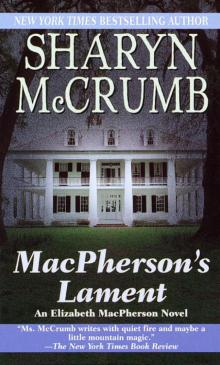 Elizabeth MacPherson 07 - MacPherson’s Lament
Elizabeth MacPherson 07 - MacPherson’s Lament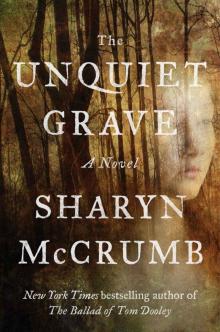 The Unquiet Grave: A Novel
The Unquiet Grave: A Novel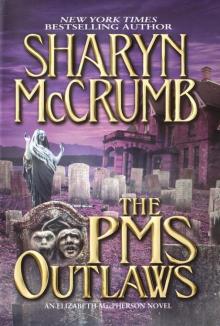 The PMS Outlaws: An Elizabeth MacPherson Novel
The PMS Outlaws: An Elizabeth MacPherson Novel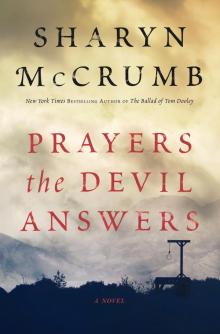 Prayers the Devil Answers
Prayers the Devil Answers Paying the Piper
Paying the Piper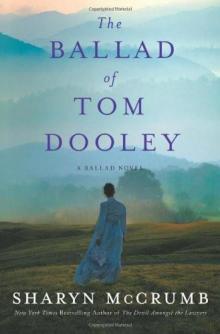 The Ballad of Tom Dooley: A Ballad Novel
The Ballad of Tom Dooley: A Ballad Novel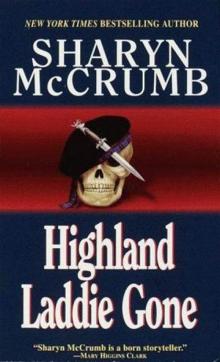 Highland Laddie Gone
Highland Laddie Gone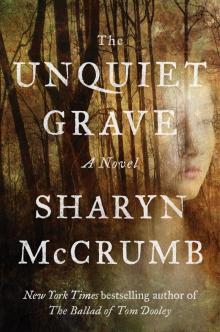 The Unquiet Grave
The Unquiet Grave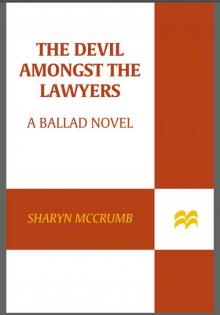 The Devil Amongst the Lawyers
The Devil Amongst the Lawyers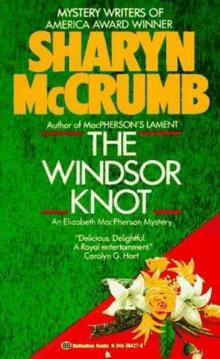 The Windsor Knot
The Windsor Knot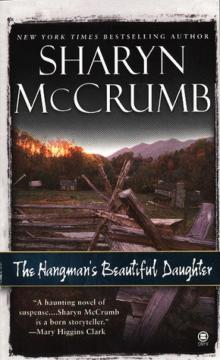 The Hangman's Beautiful Daughter
The Hangman's Beautiful Daughter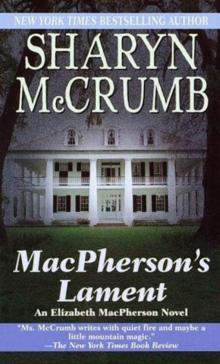 MacPherson's Lament
MacPherson's Lament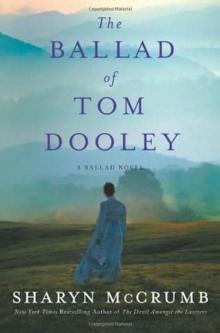 The Ballad of Tom Dooley
The Ballad of Tom Dooley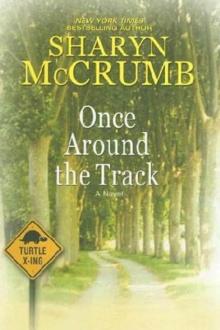 Once Around the Track
Once Around the Track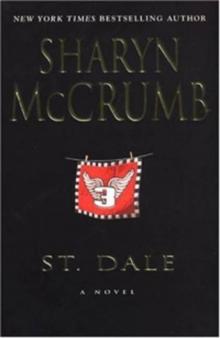 St. Dale
St. Dale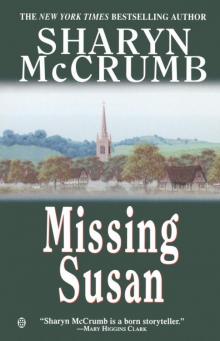 Elizabeth MacPherson 06 - Missing Susan
Elizabeth MacPherson 06 - Missing Susan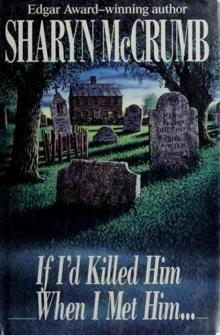 If I'd Killed Him When I Met Him…
If I'd Killed Him When I Met Him…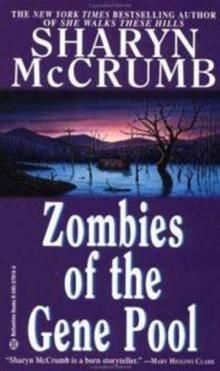 Zombies of the Gene Pool
Zombies of the Gene Pool Bimbos of the Death Sun
Bimbos of the Death Sun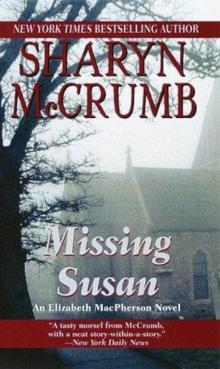 Missing Susan
Missing Susan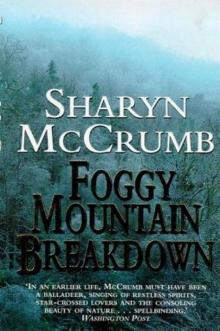 Foggy Mountain Breakdown and Other Stories
Foggy Mountain Breakdown and Other Stories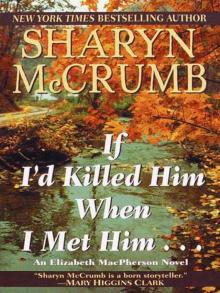 If I'd Killed Him When I Met Him
If I'd Killed Him When I Met Him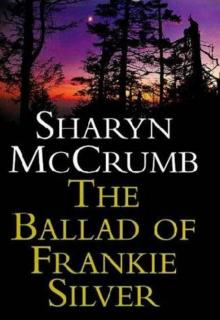 The Ballad of Frankie Silver
The Ballad of Frankie Silver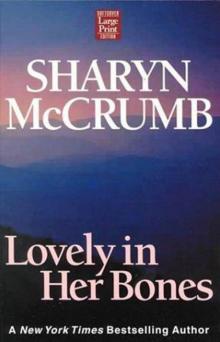 Lovely In Her Bones
Lovely In Her Bones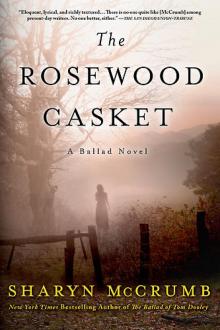 The Rosewood Casket
The Rosewood Casket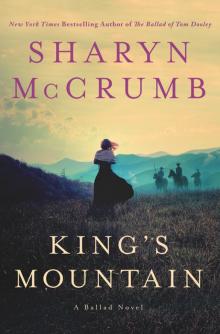 King's Mountain
King's Mountain